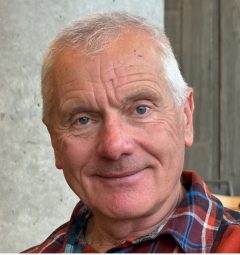|
Day: Wednesdays Dates: October 30 – December 4, 2024 Time: 9:30am-11:30am Location: Carleton University Price: $150+HST Parking Info & Room Number will be sent by email 1-2 days prior to the lecture date **This series is not recorded** OverviewThis course is intended as an introduction to a better understanding of cancer in general. No previous knowledge of biology is necessary as the introductory phase will very briefly review the structure of cells and formation of tissues as well as cell division and the importance of the cell replication cycle in understanding how cancers arise. Following this the concept of “neoplasia” or new growth will be introduced with a discussion of how a mutation in DNA can create a growth advantage for a cell, setting the stage for tumour development. The types of mutations and the genes involved will be discussed, with reference to common tumours to provide clinical context. How a pathologic diagnosis is made and the grading and staging of cancer will be discussed as a basis for choosing among the different types of treatment currently available. Finally, we will touch broadly on colon, breast, prostate and skin cancers to show how these are thought to arise and how some biologic features of these cancers can provide opportunities for specific therapies. TopicsWeek 1: Background on normal cells and tissues, including cell structure and division. A broad introduction to the various causes of cancer and types of cancer will be reviewed. Week 2: Types of normal and abnormal cell growth will precede an introduction to “neoplasia” or tumours. The differences between benign and malignant tumours will be discussed followed by how malignant tumours spread in the body. Week 3: This week will focus on the genetic aspects of cancer from the types of genetic mutations to the concepts and types of cancer genes. Week 4: This week will be more clinical in it’s approach including the clinical consequences of cancer, the importance of staging (determining the extent of spread of the tumour), an overview of the types of treatment options currently available and finally a discussion of colonic carcinoma as a model of many of the concepts learned in previous weeks Week 5: This week will concentrate on breast and prostate cancers, discussing their clinical presentations, diagnosis, staging and treatment. A specific discussion of what to look for in a pathology report will be included for both cancers. Week 6: This week will conclude with a discussion of the different types of skin cancer followed in the second half by a discussion of a topic selected by the class in a vote at the end of week 5. |
About the Lecturer
|
Policies: Please review the Lifelong Learning Policies
